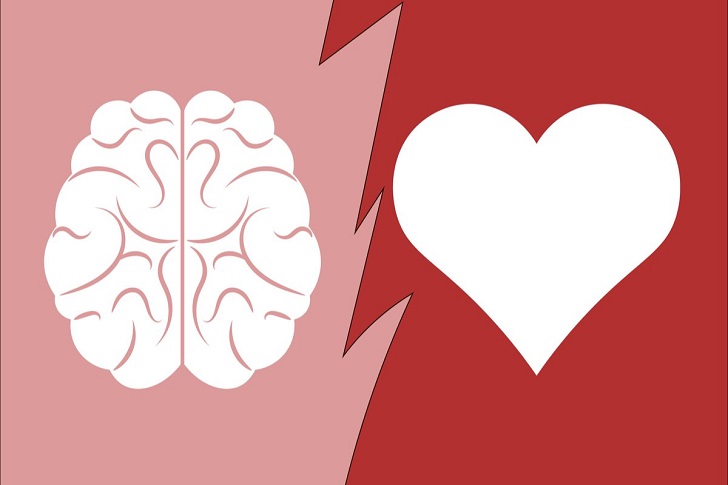
The Importance of Wellness

In today’s fast-paced and demanding world, neglecting our well-being in pursuing success and productivity is easy. However, prioritizing wellness is essential for leading a fulfilling and balanced life.
Wellness encompasses more than just physical health—it encompasses mental, emotional, and social well-being. Learn more about the importance of wellness and why taking charge of our well-being is crucial for a happy and thriving life.
Physical Health
Physical health is a fundamental aspect of wellness. Taking care of our bodies through regular exercise, balanced nutrition, and sufficient rest is essential for optimal physical health.
Engaging in physical activities strengthens our muscles, improves our cardiovascular health, boosts our immune system, and reduces the risk of chronic diseases such as heart disease, diabetes, and certain types of cancer. Prioritizing physical wellness enhances our energy levels, improves our overall quality of life, and increases our longevity.

Shutterstock/ iStock | There are five main aspects of personal health: physical, emotional, social, spiritual, and intellectual
Mental and Emotional Well-being
Mental and emotional well-being are equally important components of wellness. Taking care of our mental health involves managing stress, maintaining positive relationships, practicing self-care, and seeking professional help.
Nurturing our emotional well-being involves acknowledging and expressing our emotions, cultivating resilience, and engaging in activities that bring us joy and fulfillment. When prioritizing our mental and emotional wellness, we are better equipped to cope with life’s challenges, experience greater happiness, and build healthier relationships.
Work-Life Balance
Achieving a healthy work-life balance is a crucial aspect of wellness. In today’s hyper-connected world, it is easy to become consumed by work and neglect other areas of our lives. However, balancing work, personal life, and leisure activities is vital for our well-being.
A healthy work-life balance allows us to recharge, spend quality time with loved ones, pursue hobbies, and engage in activities that bring us joy and fulfillment. It also helps prevent burnout, reduces stress, and enhances overall life satisfaction.

Pete Newsome/ Pexels | You will never be truly satisfied by work until you are satisfied by life
Stress Management
Stress has become a prevalent part of modern life, and its negative impact on our well-being cannot be ignored. Chronic stress can lead to various physical and mental health issues, including anxiety, depression, high blood pressure, and weakened immune function.
Prioritizing wellness involves adopting effective stress management techniques such as practicing mindfulness, engaging in relaxation exercises, setting boundaries, and seeking support from loved ones or professionals. By managing stress effectively, we can improve our overall well-being and enhance our ability to handle life’s challenges.
Social Connections
Humans are social beings, and meaningful relationships contribute to happiness and well-being. Strong social connections provide emotional support, reduce feelings of loneliness and isolation, and enhance our sense of belonging. Engaging in social activities, spending time with loved ones, and cultivating new friendships contribute to our social wellness and enrich our lives.

Pixabay/ Pexels | Social wellness or social well-being refers to the development of positive relationships with other people
Preventive Health Care
Taking charge of our well-being also involves practicing preventive health care. Regular check-ups, screenings, and vaccinations can help detect and prevent potential health issues before they become more serious. Being proactive about our health empowers us to make informed decisions, take necessary actions, and maintain optimal physical and mental well-being.
More in Nutrition & Weight Loss
-
`
The Physical Signs of Hunger and How Mindful Eating Makes a Difference
Hunger is one of the most basic yet essential signals our body uses to communicate its need for energy. However, many...
December 15, 2024 -
`
Why Did Chris Pratt Call Anna Faris Before Proposing to Katherine?
Chris Pratt, the beloved star of “Guardians of the Galaxy,” made headlines when he revealed that he called his ex-wife, Anna...
December 3, 2024 -
`
6 Proven Tips to Tackle Insurance Claim Denials Successfully
Claim denials are a common hurdle for healthcare providers and professionals, even for those who follow the necessary procedures to avoid...
December 1, 2024 -
`
5 ‘Bad’ Fitness TikTok Trends You Shouldn’t Follow
TikTok has become a haven for creative fitness advice. But not all trends are worth your time or your health. From...
November 23, 2024 -
`
Does Drinking Water Affect Adrenal Hormones?
Drinking water is often seen as a simple way to stay hydrated, but it has deeper effects on our body than...
November 14, 2024 -
`
Why We Feel the Loss of Celebrities So Deeply?
Celebrity grief might sound strange at first. After all, most of us have never met these famous figures in person, yet...
November 5, 2024 -
`
Are High Deductible Insurance Plans as Ideal as They Appear to Be?
High deductible insurance plans have been a hot topic for years, especially as healthcare costs continue to rise. For many Americans,...
October 31, 2024 -
`
How Training Load Data Can Transform Your Exercise Routine
Tracking progress during workouts is challenging. Simple metrics like mileage or time don’t show the whole picture. Understanding the overall effort...
October 26, 2024 -
`
Katy Perry’s Weight Loss Journey: Secret Diet Tips Revealed
Katy Perry’s weight loss journey has been making headlines, with the pop star shedding 20 pounds over the past few months....
October 16, 2024















You must be logged in to post a comment Login